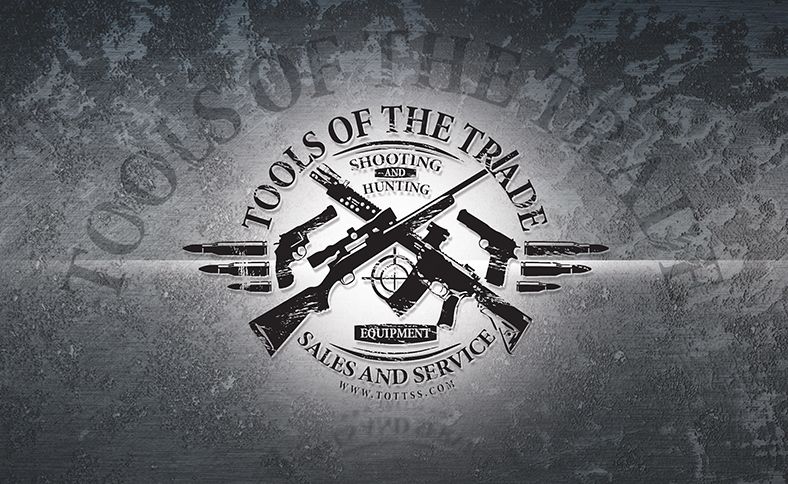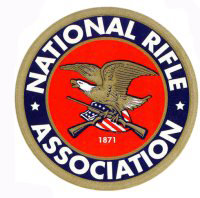Gun rights advocates in U.S. hope repeal will spur efforts here
Richard Moore
Investigative Reporter
After nearly 20 years, Canada appears poised to end one of its boldest experiments in gun control – the required registration of long guns, or shotguns and hunting rifles.
Last November, a bill to abolish the Long-Gun Registry, enacted in 1995 and gradually phased in through 2003, passed a second reading in the Canadian House of Commons by a tally of 164 to 137. It faces a third and final reading in that chamber later this year; prospects are good for passage in the Canadian Senate.
The bill would delete from federal law the obligation to register so-called nonrestricted firearms, though licensing requirements for long-gun owners to buy or possess firearms and to buy ammunition would remain in place.
The legislation would also require all registration information collected to date to be destroyed.
About 7 million long guns have been registered, but as many as 8 million guns, according to various estimates, have not been in what many say is outright defiance. The Conservative government has also extended to May 16, 2011, an existing amnesty for rifle and shotgun owners facing charges for failing to register their firearms.
Opponents cite runaway costs, gun rights, and lack of effectiveness in pushing the repeal measure. The author of the legislation, MP Candice Hoeppner, says the registration requirement pays lip service to reducing crime without actually doing so.
“Canadian taxpayers have shelled out $2 billion and counting to hassle hunters, farmers and sport shooters with registration requirements, while receiving nothing in return in crime reduction or prevention,” Hoeppner told a recent gathering of the Ontario Federation of Anglers and Hunters (OFAH).
In an article written for London Free Press, Hoeppner called the registry a “massive” policy failure.
“It makes no sense to force law-abiding individuals with firearms licenses to register their long-guns,” she wrote. “It makes no sense to believe the registry will prevent a gun crime from taking place.”
And, Hoeppner stated, the $2 billion could have been better spent.
“This money could have gone toward front-line police officers, or for programs to help our at-risk kids,” she wrote. ” . . . In order to make our communities truly safer we need to retool our criminal justice system and focus on the real problems. We need to strengthen the Criminal Code with tough anticrime and anti-gang measures and make sure criminals serve the time they deserve.”
Hoeppner has also taken on those who say repeal is a measure aimed against women, the principal victims of domestic violence. In fact, she says, Liberals have called her a “showpiece” and “little foot solder” and have on multiple occasions told her to sit down and shut up.
“They are telling women who are part of families that farm, hunt or sport shoot to also sit down and be quiet,” she wrote. “They are telling women if they don’t think as the Liberals do on these issues, they should be silent.”
Support for the registry
While the odds favor repeal, opponents still have a variety of parliamentary tactics they can use to stall the bill, while outside Parliament a sizable coalition also supports keeping the registry in place.
Advocates say repealing the registry will deprive front line police, suicide prevention and domestic violence prevention workers of an essential tool.
“Opponents of gun control claim rifles and shotguns are not a problem in Canada,” said Denis Côté, president of the Quebec municipal police federation. “They are wrong. Rifles and shotguns make up a substantial proportion of the guns recovered in crime in this country. They are the guns most often used to kill police officers, in domestic violence situations and in suicides, particularly those involving youths.”
In addition, supporters say police use the gun registry approximately 11,000 times a day, and so-called long guns are especially a problem in suicides.
Wendy Cukier, president of the Coalition for Gun Control, said an American effort was behind the push to repeal the law.
“There is a well-funded, U.S. inspired campaign to misrepresent the facts,” Cukier said. “Millions have been spent on targeted campaigns and strategies. Reports were withheld until after the registry vote. The opponents continue to invoke the costs of the registry, but the RCMP (Royal Canadian Mounted Police) have stated clearly that dismantling the registration of rifles and shotguns will at most save $3 million a year, less than the cost of a complex murder investigation.”
Organizations supporting the law include the Canadian Association of Chiefs of Police, the Canadian Police Association, the Canadian Association of Police Boards, the Canadian Association of Emergency Physicians, the YWCA Canada, the Canadian Federation of University Women, the Canadian Association for Adolescent Health, le Barreau du Québec, la Fédération des femmes du Québec, the G-13 consortium of 13 national women’s groups.
Arguments against
An equally vocal and perhaps politically stronger coalition has emerged against the registry, particularly the Ontario Federation of Anglers & Hunters and a wide array of sport shooters groups.
What’s more, there are multiple grassroots groups, including the aptly named Canadian Unregistered Firearms Owners Association, which advocates peaceful, nonviolent but active civil disobedience.
Among other things, opponents allege, assertions that police search the registry 11,000 times a day is bogus because such things as routine traffic stops trigger automatic queries. Others have questioned the security of the system, which they say has been hacked, allowing unauthorized users to gain the personal information of gun owners, including their names and addresses.
Even worse than the security issue are the costs associated with the registry. An auditor general’s report in 2002 found significant cost overruns over original government estimates.
In 1995, according to the audit, the government told Parliament the long-gun registry would involve a net cost of $2 million, with registration fees covering everything else. By May 2000, the government admitted, the costs had ballooned to at least $327 million.
By March 2005, the audit continued, the net cost was $946 million and, by the summer of 2006, costs had exceeded $1 billion. Parliament was misinformed about many of those costs, the auditor general concluded.
The price tag now stands at $2 billion.
What’s more, according to the Public Safety Canada department, neither the costs incurred by provincial and territorial agencies in enforcing the legislation nor the costs carried by firearms owners and businesses to comply with the legislation have been calculated, and the agency cites two Library of Parliament studies estimating enforcement and compliance costs to run into hundreds of millions of dollars.
Vic Toews, now the nation’s Minister of Public Safety and a former member of Parliament, has long supported repeal because of the costs associated with a law he says does not work.
“While the majority of Canadians support cost-effective gun-control programs, they also agree that the 2 billion in taxpayer dollars spent since 1995 on the mismanaged Liberal gun registry has not kept guns out of the hands of criminals,” he said in 2006.
At the same time the government was throwing away that money, he said, other law enforcement services continued to suffer from funding cutbacks and staffing shortages, particularly along the borders.
Impact on crime
But what about the impact on crime? According to the current government, it has not reduced the crime rate.
There are nearly 7 million registered long guns in Canada, the Canadian Centre for Justice Statistics reports. Yet, the public safety department adds, of 2,441 homicides recorded in Canada since mandatory long-gun registration was introduced in 2003, fewer than 2 percent (47) were committed with rifles and shotguns known to have been registered.
In addition, the department cites the Vancouver Police Strategic Plan of 2004-08, which pegs illegal smuggling by organized crime as the principal source of firearms.
“Indeed, the Vancouver police report that 97 percent of firearms seized in 2003 were illegal guns smuggled in from the United States, usually by organized crime,” the public safety department states.
The bottom line is, criminals don’t register firearms, says OFAH executive director Mike Reader.
“Instead of creating a paper chase for the law-abiding, the system needs to be revamped to focus on law breakers who use illegal firearms, many of them smuggled into Canada from the U.S., to commit crimes in our communities,” Reader said.
Of course, Second Amendment advocates are closely watching the Canadian fight, hoping a repeal of the registry in Canada will blunt fledgling gun registration movements not only in the United States but in the United Nations.
“If all goes well in the Canadian parliament, Dominion gun owners will be freed from 14 years of living under the crushing weight of a bureaucratic, scandal-ridden, wasteful, invasive, $2 billion, error-ridden and inarguably worthless long gun registry,” NRA executive vice-president Wayne LaPierre wrote in the March issue of American Hunter. “The registry has been proven a fraud in regard to promised minimal costs and significant impact on violent crime.”
LaPierre quoted Dave Kopel, research director of the Independence Institute in Colorado, as saying, “Repeal of the Canadian registry would be of tremendous global significance. Repeal would also shatter the claim by the Canadian gun prohibition lobby that gun control in Canada is an irreversible ratchet.”
That’s huge on the world stage, LaPierre wrote, “and made all the more significant as a backdrop in the pending debate on the United Nations’ global gun ban.”
Richard Moore can be reached at rmmoore1@verizon.net




